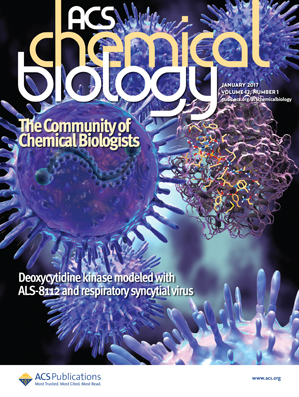Characterization of Tumor Responses in Patients With Unresectable Hepatocellular Carcinoma Treated With Lenvatinib in the Phase 3 Randomized Trial, REFLECT
IF 3.5
2区 生物学
Q2 BIOCHEMISTRY & MOLECULAR BIOLOGY
引用次数: 0
Abstract
Introduction: In REFLECT, lenvatinib was noninferior to sorafenib in terms of overall survival (OS) in patients with unresectable hepatocellular carcinoma (uHCC; median 13.6 vs 12.3 months; HR 0.92, 95% CI 0.79-1.06). The objective response rate (ORR) with lenvatinib was 18.8% by blinded independent imaging review (IIR) per Response Evaluation Criteria in Solid tumors version 1.1 (RECIST v1.1); per modified RECIST (mRECIST), the ORR was 40.6%. We sought to further characterize these tumor responses and explore ORR’s importance among outcomes for patients with HCC. Methods: Efficacy assessments included all patients randomized to receive lenvatinib treatment (body weight ≥60 kg, 12 mg/day; <60 kg, 8 mg/day). Time to first objective response (TTR) and duration of response (DOR) included patients who achieved a partial or complete tumor response. Tumors were assessed by IIR per RECIST v1.1 or mRECIST. Results: 478 Patients were randomized to receive lenvatinib. By IIR, 90 patients (18.8%) achieved an objective response per RECIST v1.1 and 194 (40.6%) had an objective response per mRECIST. Median TTR/DOR were 2.8 months/7.4 months in responders per RECIST v1.1, and 1.9 months/7.3 months in responders per mRECIST, respectively. Per baseline disease characteristics, ORRs by Child-Pugh score (A5/A6) were 21.2%/11.2% per RECIST v1.1 and 42.9%/33.6% per mRECIST, respectively. By baseline alpha-fetoprotein (AFP) level (<400/≥400 ng/mL), ORRs were: 21.4%/15.4% per RECIST v1.1 and 45.6%/33.8% per mRECIST, respectively. Incidences of treatment-related treatment-emergent adverse events were 98.9% in responders per RECIST v1.1 and 97.9% in responders per mRECIST. Conclusions: Responses were seen even in those patients with more severe disease at baseline. Tumor responses occurred early and were durable.在 REFLECT 3 期随机试验中使用伦伐替尼治疗无法切除的肝细胞癌患者肿瘤反应的特征描述
简介在REFLECT研究中,就不可切除肝细胞癌(uHCC;中位13.6个月对12.3个月;HR 0.92,95% CI 0.79-1.06)患者的总生存期(OS)而言,来伐替尼并不优于索拉非尼。根据实体瘤反应评估标准1.1版(RECIST v1.1),通过盲法独立成像审查(IIR),来伐替尼的客观反应率(ORR)为18.8%;根据改良RECIST(mRECIST),ORR为40.6%。我们试图进一步描述这些肿瘤反应的特征,并探讨 ORR 在 HCC 患者疗效中的重要性:疗效评估包括所有随机接受来伐替尼治疗的患者(体重≥60 kg,12 mg/天;<60 kg,8 mg/天)。首次客观反应时间(TTR)和反应持续时间(DOR)包括获得部分或完全肿瘤反应的患者。肿瘤根据 RECIST v1.1 或 mRECIST 进行 IIR 评估。结果478名患者随机接受来伐替尼治疗。根据RECIST v1.1标准,90名患者(18.8%)获得了IIR客观反应,194名患者(40.6%)获得了mRECIST客观反应。根据RECIST v1.1标准,应答者的中位TTR/DOR分别为2.8个月/7.4个月,根据mRECIST标准,应答者的中位TTR/DOR分别为1.9个月/7.3个月。根据基线疾病特征,按Child-Pugh评分(A5/A6)计算,RECIST v1.1的ORR分别为21.2%/11.2%,mRECIST的ORR分别为42.9%/33.6%。按基线甲胎蛋白(AFP)水平(<400/≥400 ng/mL)计算,ORR分别为:21.4%/15.4%:根据RECIST v1.1标准,ORR分别为21.4%/15.4%;根据mRECIST标准,ORR分别为45.6%/33.8%。根据RECIST v1.1标准,应答者的治疗相关不良反应发生率为98.9%,根据mRECIST标准,应答者的治疗相关不良反应发生率为97.9%:结论:即使基线时病情较重的患者也出现了反应。肿瘤反应出现得早且持久。
本文章由计算机程序翻译,如有差异,请以英文原文为准。
求助全文
约1分钟内获得全文
求助全文
来源期刊

ACS Chemical Biology
生物-生化与分子生物学
CiteScore
7.50
自引率
5.00%
发文量
353
审稿时长
3.3 months
期刊介绍:
ACS Chemical Biology provides an international forum for the rapid communication of research that broadly embraces the interface between chemistry and biology.
The journal also serves as a forum to facilitate the communication between biologists and chemists that will translate into new research opportunities and discoveries. Results will be published in which molecular reasoning has been used to probe questions through in vitro investigations, cell biological methods, or organismic studies.
We welcome mechanistic studies on proteins, nucleic acids, sugars, lipids, and nonbiological polymers. The journal serves a large scientific community, exploring cellular function from both chemical and biological perspectives. It is understood that submitted work is based upon original results and has not been published previously.
 求助内容:
求助内容: 应助结果提醒方式:
应助结果提醒方式:


